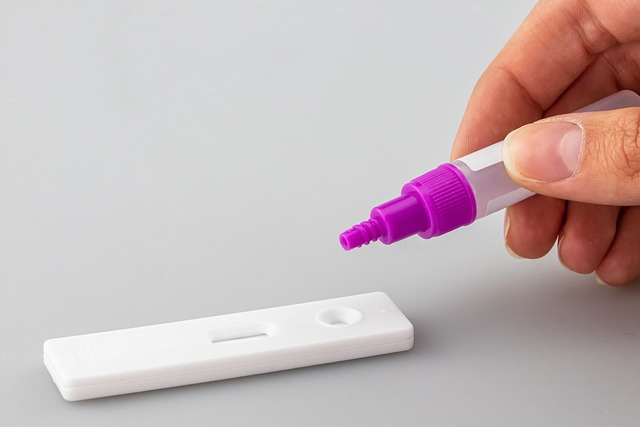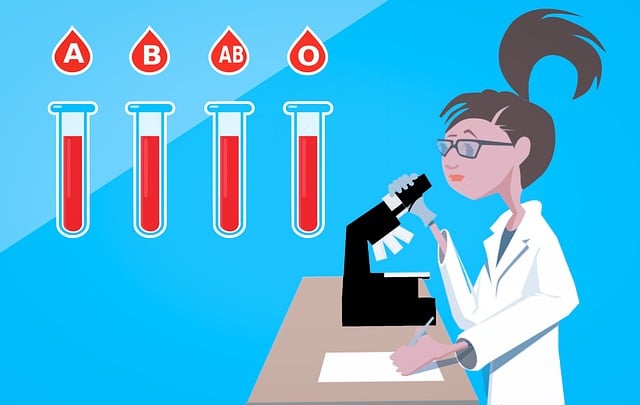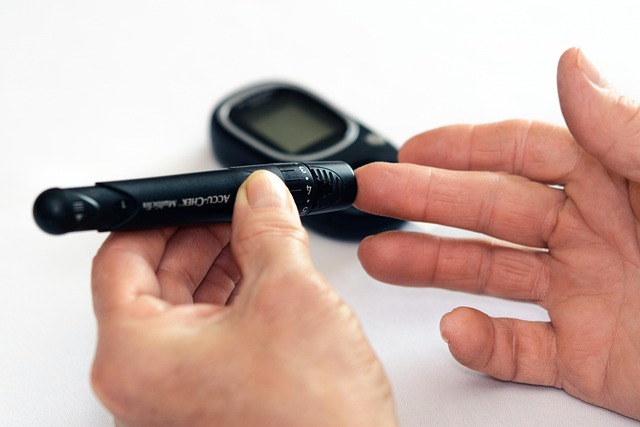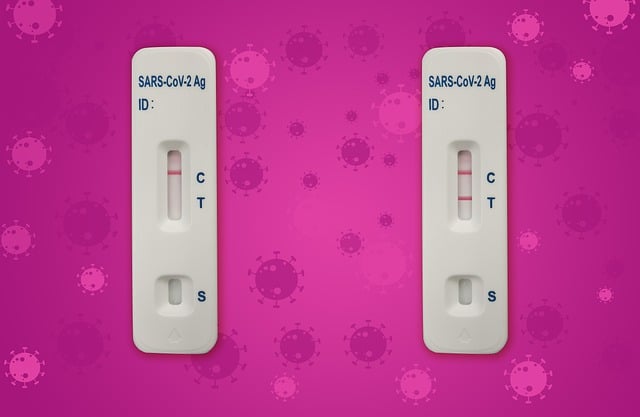Comprehensive thyroid testing goes beyond basic assessments by measuring key hormones (T4, T3, TSH) and related substances, including autoimmune antibodies. This detailed analysis helps identify subtle imbalances in thyroid function, enabling tailored treatment decisions based on individual patient needs. Comprehensive tests are crucial for athletes, men's health, pregnant women, and those with conventional test results that don't offer a definitive answer, providing insights into conditions like hypothyroidism and autoimmune disorders.
“Unraveling the intricacies of your thyroid health? Confused between comprehensive thyroid panels and basic tests? This guide is your trusted companion. We demystify comprehensive thyroid testing, delving into key hormones measured, its advantages over basic tests, and common imbalances detected.
Learn when to prioritize a thorough evaluation and how to interpret results. From understanding thyroid function to navigating reports, equip yourself with knowledge. Embrace informed decisions for optimal thyroid wellness through comprehensive thyroid testing.”
- Understanding Thyroid Function: Key Hormones Measured
- Comprehensive Panel vs. Basic Tests: What's Included?
- Detecting Thyroid Imbalances: Common Deficiencies and Excesses
- When to Opt for a Comprehensive Thyroid Test
- Interpreting Results: Navigating Your Thyroid Report
Understanding Thyroid Function: Key Hormones Measured

Understanding Thyroid Function involves recognizing the vital role played by this endocrine gland in regulating metabolism. The thyroid produces two primary hormones: thyroxine (T4) and triiodothyronine (T3). These hormones are crucial for managing energy production, growth, and development. Comprehensive thyroid testing goes beyond basic assessments by measuring these key hormones, along with other related substances, to provide a detailed picture of thyroid health.
In a comprehensive thyroid panel, you can expect to find tests that quantify T4 and T3 levels, as well as measurements for thyrotropin (TSH), which is the hormone released by the pituitary gland to stimulate thyroid function. Additionally, tests may include assessments for antibodies that could indicate autoimmune disorders contributing to conditions like adult-onset hypothyroidism or even thyroid cancer risk factors. This broad analysis enables healthcare professionals to identify subtle imbalances and make informed decisions tailored to each patient’s unique needs.
Comprehensive Panel vs. Basic Tests: What's Included?

When considering comprehensive thyroid testing versus basic tests, it’s crucial to understand what each option includes. Comprehensive thyroid panels offer a detailed look at your thyroid health by measuring multiple hormones and related markers. These panels typically include tests for TSH (thyroid-stimulating hormone), free T3 and T4 (the active forms of thyroid hormone), and sometimes anti-thyroid antibodies, among others. This in-depth analysis can help detect subtle imbalances that may not be picked up by basic testing.
Basic thyroid tests, on the other hand, focus on measuring TSH levels primarily. While this test is essential for screening and diagnosing conditions like hypothyroidism (where TSH is high) or hyperthyroidism, it provides a limited view of overall thyroid function. Knowing the nuances of comprehensive thyroid testing can empower individuals to make informed decisions about their health, especially when considering factors like baby’s thyroid development or when should I get a thyroid checkup based on symptoms or risk factors.
Detecting Thyroid Imbalances: Common Deficiencies and Excesses

Thyroid imbalances are more common than many realize, with deficiencies and excesses affecting a significant portion of the population. Detecting these issues early is crucial for effective management and treatment. Comprehensive thyroid testing offers a detailed look at various hormones and markers to identify subtle abnormalities that basic tests might miss.
While standard thyroid tests often focus on TSH (Thyroid-Stimulating Hormone) levels, comprehensive panels expand this scope. They typically include measurements of T3, T4, and free thyroxine (fT4), providing insights into both peripheral thyroid hormone conversion and central regulation. This is particularly relevant for athletes or individuals with specific health concerns like men’s thyroid health issues, where optimal performance and well-being depend on precise hormone balance. In addition, comprehensive testing may reveal underlying causes of thyroid disorders, such as autoimmune conditions or nutrient deficiencies, enabling tailored interventions for pregnant women or anyone seeking long-term wellness.
When to Opt for a Comprehensive Thyroid Test

If you’ve been experiencing persistent symptoms like fatigue, weight fluctuations, dry skin, or even muscle weakness, it might be time to consider a comprehensive thyroid panel. This advanced testing goes beyond basic measures, delving into multiple markers of thyroid health. It’s particularly recommended when conventional diagnostic methods, such as a simple TSH test, fail to provide a clear picture.
A comprehensive thyroid test is especially crucial if you have a known high TSH level but your doctor wants to explore further. This could indicate underlying issues like hypothyroidism or even autoimmune disorders affecting the thyroid. Additionally, it may be beneficial for individuals looking to optimize their hormonal balance, including testing testosterone levels alongside thyroid markers, as thyroid health directly impacts overall hormonal regulation.
Interpreting Results: Navigating Your Thyroid Report

Interpretation of your comprehensive thyroid panel results is a crucial step in understanding your thyroid health. This type of testing provides a detailed look at various thyroid hormones and markers, allowing healthcare professionals to detect subtle imbalances that may be missed with basic tests. The report will include values for TSH (thyroid-stimulating hormone), free T4 (T4), free T3 (T3), and sometimes TPO antibodies and thyroglobulin antibodies—all offering insights into different aspects of thyroid function.
Navigating your thyroid report involves comparing your results to established reference ranges, which can vary between labs. While an ultrasound vs. biopsy for thyroid is not always needed, if certain values are outside the normal range, your doctor might suggest further investigation. For instance, elevated TSH could indicate hyperthyroidism or a signs of underactive thyroid, while low T3 levels may point to hypothyroidism. Each result has its significance, and understanding these can empower you to take proactive steps towards managing your thyroid health.
When considering comprehensive thyroid testing, understanding the differences between basic and detailed panels is key. A comprehensive thyroid panel offers a deeper look at your thyroid health by measuring multiple hormones and antibodies, providing insights into potential imbalances not detected through standard tests. This expanded analysis can be particularly valuable for those experiencing symptoms like fatigue, weight fluctuations, or mood changes that might be linked to thyroid dysfunction. By opting for a comprehensive test when indicated, individuals can gain a more accurate assessment of their thyroid’s function and receive personalized recommendations for optimal health.
